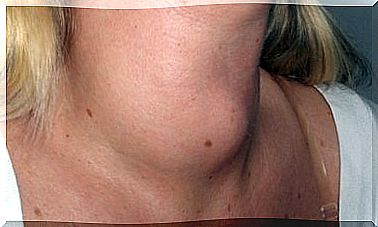What Effects Does Caffeine Have On The Nervous System?
The effect of caffeine on the nervous system is a topic of frequent discussion. Coffee is a substance present and companion of humanity for a long time. It has its defenders and its detractors, but no one can deny its omnipresence.
Most of us have consumed coffee at some point in our lives, or do so on a daily basis. In general, we associate coffee with times when we need more energy and counteract sleep.
Is caffeine good or bad?

There are myths and truths surrounding the effects of caffeine on the nervous system. In general, scientific studies are carried out to corroborate or deny certain consequences that are associated with coffee consumption.
Remember that caffeine is a natural substance. There is also a synthetic caffeine preparation that is often added to certain drugs, as well as to energy drinks.
In the general population, more than nine out of ten people have consumed or are consuming caffeine. Which reveals the diffusion that the substance has among all of us.
It is common for us to link the effect of caffeine on the nervous system with the activation to perform some task. We assume that our intellectual performance and attention improve for activities that require it, such as driving, for example.
Some of the assumptions are correct and we will see it next. Another part, however, is not proven by science.
The action of caffeine on the nervous system
Once we ingest the substance, the time it takes for caffeine to act on the nervous system is fifteen minutes. Then its effects last up to six hours approximately.
Caffeine is an adenosine receptor antagonist. This means that it has a molecular structure that allows it to occupy the space of this receptor, preventing the substance known as adenosine from occupying it .
The latter is a metabolic result that the body generates after using energy. It is not a waste, but we can understand it as the substance that appears when the cellular fuel called adenosine triphosphate (ATP) is used up.
After using ATP to function in some activity, such as a physical exercise, an hour of study or paying attention to something, adenosine arises. Adenosine binds to specific receptors on cells and causes sleepiness.
Caffeine in the nervous system, as we said, blocks these receptors. So adenosine has nothing to bind to, so it doesn’t get the sleep it should.
Coffee and sleep
It is correct to say that caffeine decreases the feeling of sleep. It is something that has already been proven from a scientific point of view. This effect of caffeine on the nervous system is the reason why it is used by students or night workers.
But not all people react the same to caffeine. That is why not all sleep is blocked in the same way. For some the effect is quite immediate and long-lasting, while others claim that coffee does not change their resting patterns.
It is also known that it is not the way the coffee is prepared that determines the sleep block, but the amount of effective caffeine that is ingested. The effect will be similar with a filtered coffee beans as with a shaken coffee, if the milligrams taken match.
On the other hand, caffeine has been compared to napping for the moments before driving a vehicle. And it has been found that ingesting coffee can be equivalent to a thirty-minute nap prior to driving.
Caffeine and other brain substances

Caffeine in the nervous system does not only have its effect on adenosine. Scientists who study it have found that it influences the body’s dopaminergic activity. The dopamine system of the nervous system is mediated by a transmitter substance called dopamine.
Dopamine is linked to feelings of pleasure and is impaired in Parkinson’s disease. Caffeine, therefore, indirectly activates dopamine receptors, as if it were the natural substance. This leads to feelings of well-being that can be recorded when consuming caffeine.
In the same way, when activating the dopaminergic system, scientists have wondered what relationship it could have with Parkinson’s. The answers are divided:
- Some studies attribute caffeine to a preventive effect for the disease.
- Other works deny it.
Not less is the addictive effect of caffeine on the nervous system. International medical societies agree that 400 milligrams per day is the upper safe limit for consumption. Larger doses can cause addiction symptoms and withdrawal symptoms when the substance is withdrawn.
Caffeine can be good when you know how to consume it
In conclusion, it is a drink that has beneficial effects when consumed in moderation. It is not a magic substance to eliminate tiredness and sleep, but it can help in certain circumstances.









